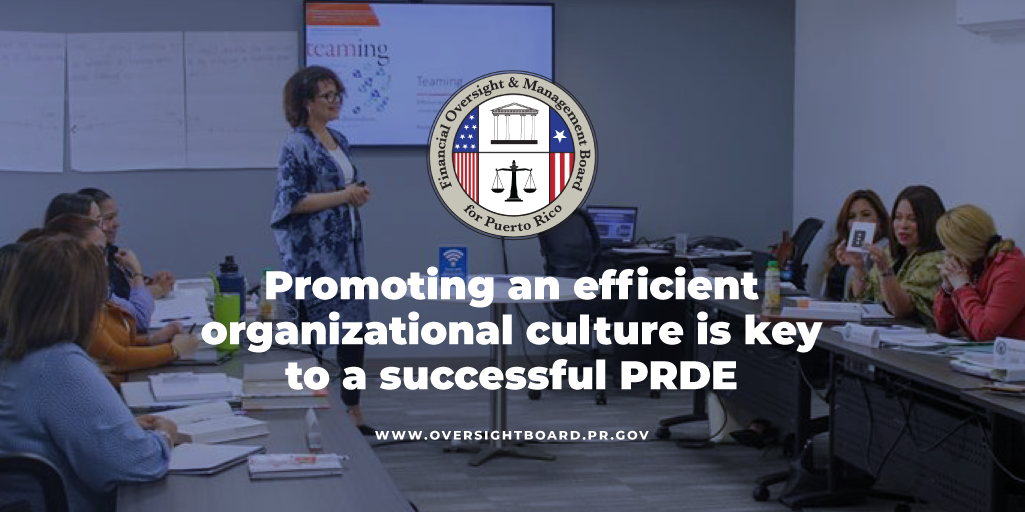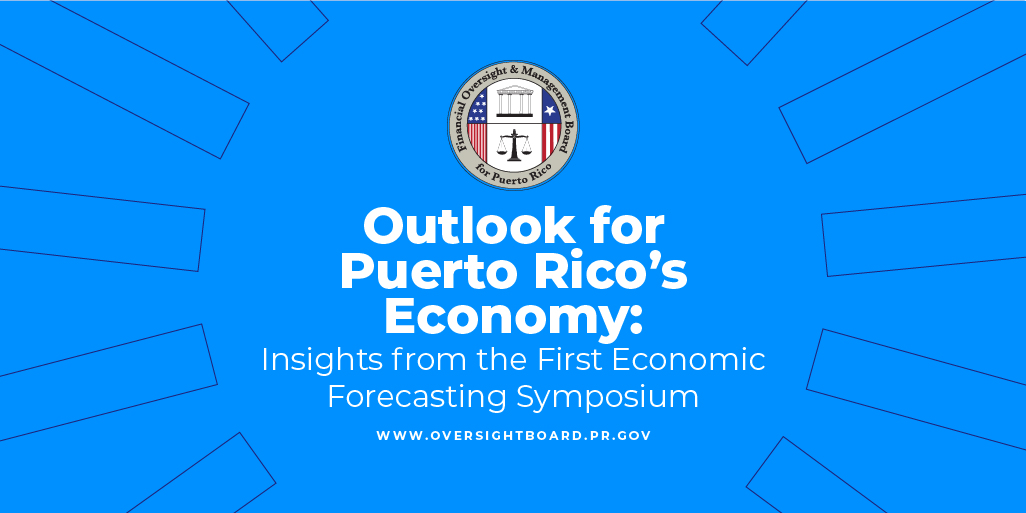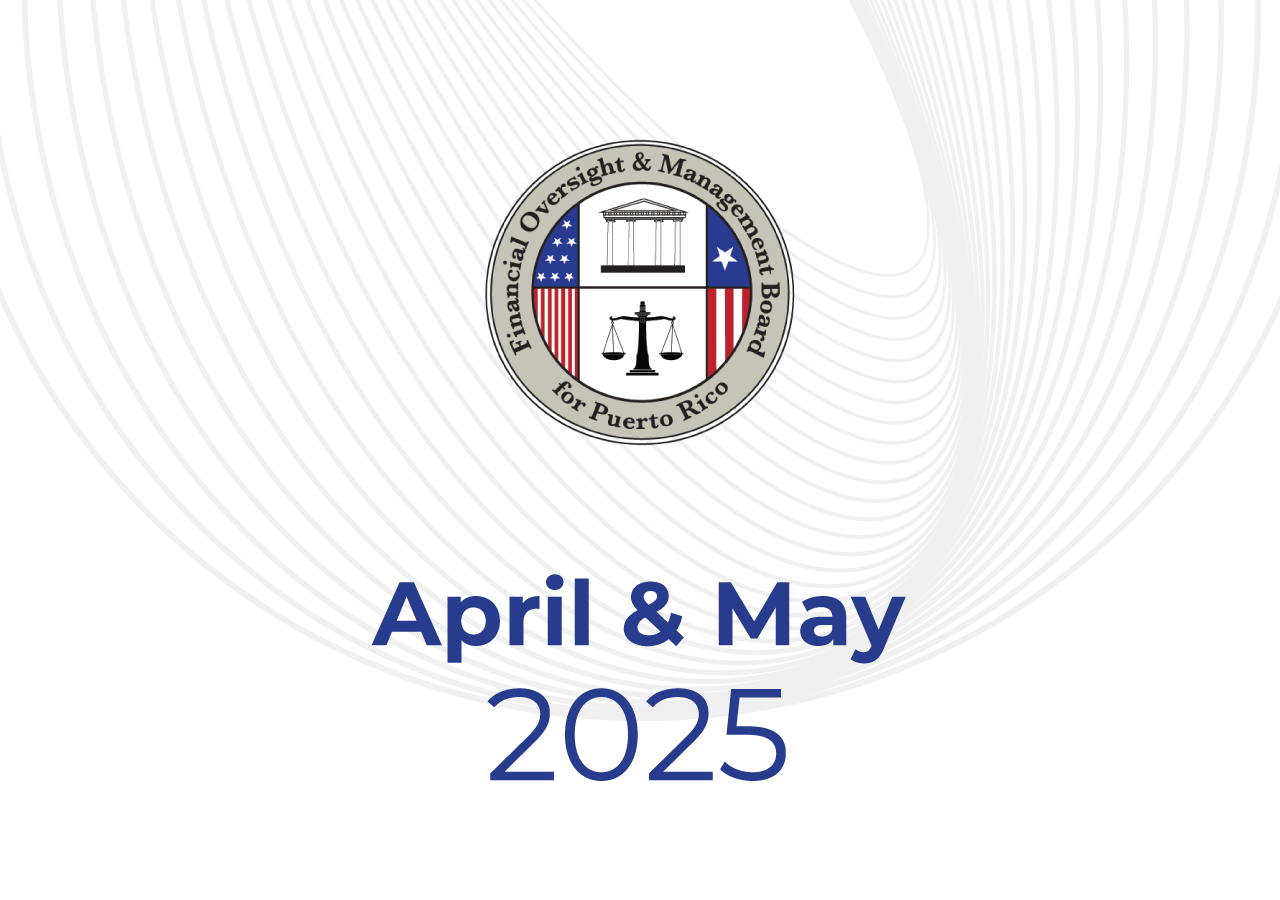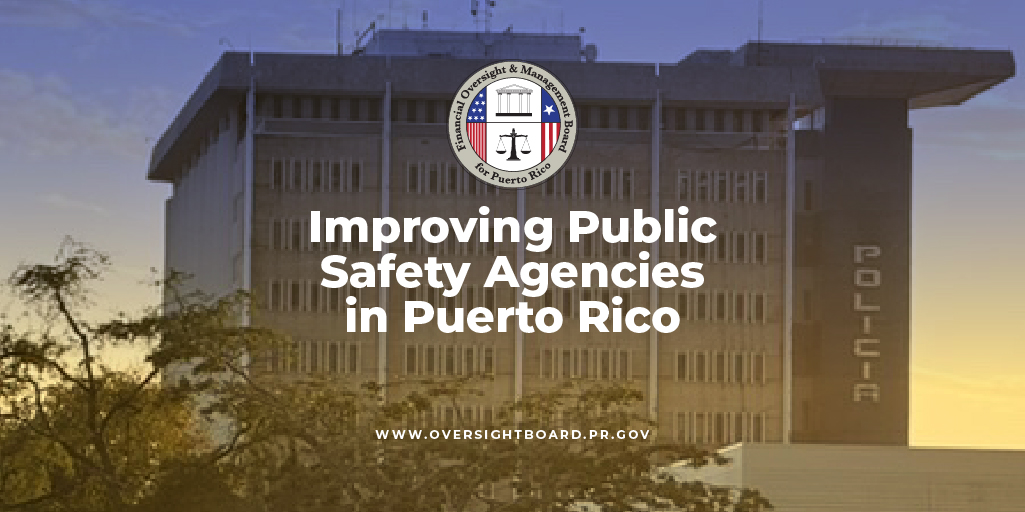An up to date organizational structure, compensation practices and methodologies that lead to competitive, fair, and equitable salaries, an employee evaluation geared towards professional development and growth, and a streamlined, and tech-enabled recruitment process may not be top of mind in K-12 education, but they are essential elements of a successful Education Department.
That is why the most recent workshops of the spring 2023 session of the Education Leadership Development Program, a joint initiative between the Financial Oversight and Management Board for Puerto Rico (FOMB) and the Education Department (PRDE), focused on enhancing the agency’s operational capacity and improving the way PRDE works for teachers, students, and parents.
Olivier Perrinjaquet, Emanuelle Alemar, and Soniemi Rodríguez of the FOMB’s Research and Policy Department shared with program participants the goals, methods, and processes of the broader Civil Service Reform (CSR) the FOMB and the Government are implementing together across several agencies.
Workshop leaders discussed with mid-career professionals participating in the Program how the CSR comprehensive approaches and methodologies can be implemented at PRDE – and the office they manage. “This approach we used in the CSR seeks to build and implement an efficient, fit-for-future organizational structure equipped with the right talent, with the in-demand skills and competencies necessary for mission fulfilment,” explained Olivier Perrinjaquet. “Another key objective of the CSR, is to ensure that all government employees have a competitive salary with respect to the local labor market, following a data-driven, market-based methodology,” he added.

An additional important element discussed was how to effectively identify and close skill and competency gaps. Evaluating employees is a core task of management, and can have far-reaching, positive impacts on organizational culture and performance. Emanuelle Alemar explained that as part of the employee evaluation cycle, they received an individualized report highlighting skill gaps and areas of opportunity followed by a meaningful conversation with their supervisors to devise individualized professional development plans to close the identified skill gaps, and match skill improvement areas with resources.

The relevance of change management planning and leading transformational change was another core topic discussed in the workshop. Soniemi Rodriguez highlighted that consistently engaging with employees, listening to their perspectives and challenges, and addressing their concerns is critical for success in change management. The importance of providing proper guidance and support to all employees through changes in an organization, be it of a new, modernized organizational structure, an innovative method of compensating employees, a novel system to evaluate employees, or a revitalized recruitment process, are central components within the CSR and cannot be overstated.






